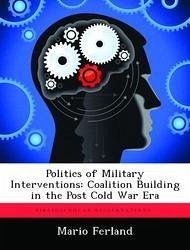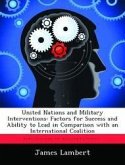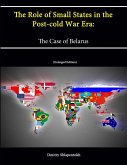This thesis explores a possible model to help predict the participation of countries in coalitions aimed at military interventions. The model is composed of six factors drawn from modern political science and international relations theories, as well as recognized states responsibilities. The six factors are: legitimacy, national interests, capabilities, internal political context, international responsibility, and public opinion. This model is assessed against five modern democratic states and their participation in three different conflicts of the past 20 years. The decisions to participate, or not, in the interventions in Yugoslavia, Afghanistan, and the second War in Iraq are evaluated through the model from the perspective of the United Kingdom, France, Germany, Canada, and Australia. The assessment recognizes that each of the factors is often perceived differently by each of the countries of interest. By acknowledging the different perceptions of each country, the model acquires more precision in assessing and predicting decisions. The model works reasonably well in explaining and predicting why specific countries decided to participate in military interventions, but its subjective quality may lack the consistency required for wider application. It successfully predicted participation when all six factors were positive. In the end, this model has demonstrated that, at least for the five countries studied, the decision to participate in a coalition aimed at military intervention remains a complex political decision, centered on the specific country's unique perception of its own advantages and interests within the international system.








